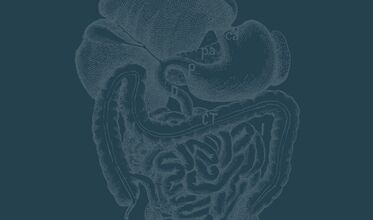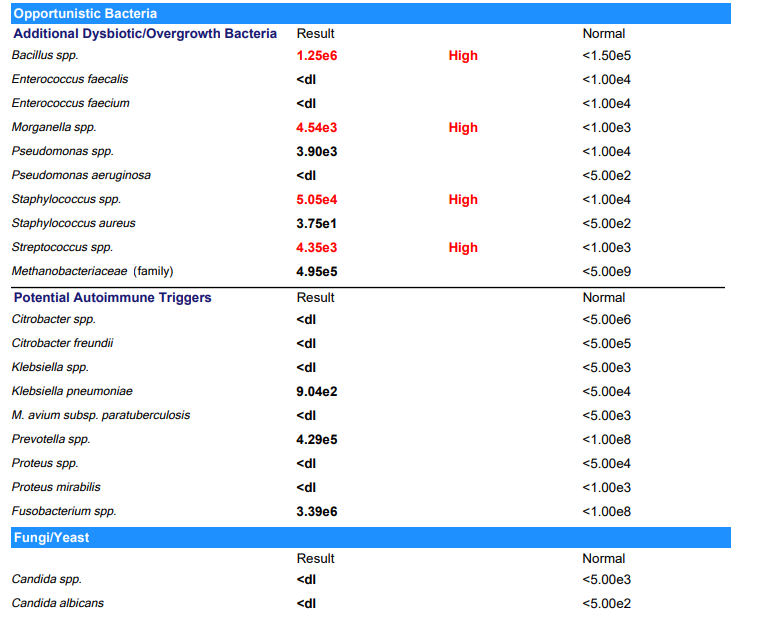|
When this patient walked through the door they complained of daily diarrhea and cramping for the last 6 months. Their MD had prescribed them several rounds of antibiotics and recommended a bland diet but the diarrhea and cramping only worsened as time went on. When they stepped into our clinic, they reported diarrhea up to 7 times a day. They were exhausted, embarrassed and at the end of their rope - most of all they wanted answers. In Traditional Chinese Medicine, the Digestive System is philosophically the center of the body. Without the ability to take in food and transform it efficiently and effectively into energy, all the other systems have a much more difficult time working properly as well. This ancient and simple concept is gaining more scientific support as we research the most fascinating medical frontier: the microbiome of our gut. We are learning that the health of our gut and the microbes within it have effects outside the gut: Alzheimer’s, MS, asthma, rheumatoid arthritis are being understood in this new context. Its not just disease that the microbes confer to us, we now know that 70-90% of our serotonin is produced by gut microbes. Indeed, there are thousands of bacteria that support our health: inside the gut and out. What does the GI MAP test? The GI MAP stool test is a DNA based test (is not culture based) and will test for:
We look for more than just pathogens. We can have overgrowth of dysbiotic bacteria or even an overgrowth of 2 classes of bacteria that can create health issues. With the GI MAP we are able to get a multifaceted picture of not only disease, but where your gut is on the spectrum of health and function. When is testing appropriate? We are always surprised when our patients with GI complaints who have diagnoses of SIBO or IBS tell us they haven’t had a stool test. It is often the place we start. There are many more conditions that may have underlying gut imbalances, and it does not need to manifest as a GI problem:
What’s involved with the actual test? Everyone wants to know how the test is performed and what the process is. We give you a kit at the office (or we can have one mailed to you from the lab) and there are instructions inside. You will catch a portion of your bowel movement into a paper tray supplied in the kit. There is a vial of preservative liquid and the lid has a scooper attachment on it. You scoop a couple of samples from the stool, put it into the liquid, seal it up, close the box, and drop it off at UPS. Pretty simple. I have changed diapers that were a bigger ordeal! What is treatment like at SFIM? We only use natural medicine to correct imbalances we see on the tests. We have come to understand the application of Traditional Chinese Medicine herbal formulas (in pill form or granules) in the context of modern digestive issues and when this is combined with the right supplements, we see real results. We will advise you of feasible dietary modifications based on your microbial populations. Our treatment approach does not include things like juice cleanses, fasting, restrictive diets like keto/paleo, colon hydrotherapy, or the word “detox”. Our treatment philosophy is rooted in science and the classic tenets of Traditional Chinese Medicine. We will always inform you of the pros and cons of other western therapies such as antibiotics or antiprotozoal therapies. Course of treatment varies widely from 2 weeks to 4 months or longer depending on the condition. What happened to that patient? GI stool testing revealed they had a form of H. pylori that was resistant to the type antibiotics they were being prescribed. This did double damage - the H. Pylori was unaffected by the treatment and all the good bacteria in their gut was killed off. With the information we learned from stool testing, we were able to develop a treatment plan that actually treated the patient's symptoms and resolve the root of their problem. By Dr Jennifer Bezjak
0 Comments
Leave a Reply. |
Archives
December 2023
Categories
All
|
Proudly powered by Weebly



 RSS Feed
RSS Feed